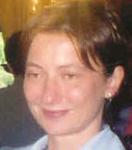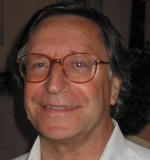 |
 |
 |
 |
Workshop on: QUANTUM INFORMATION PROCESSING AND QUANTUM COMMUNICATIONS
November 2003 - July 2004 , Pavia
![]() We will have a workshop of 9 months, starting from November 2003 and ending
July 2004, with small working groups of researchers visiting the QUIT
Group at Pavia. Each visitor/working group will stay for a period of time
varying from a few days to two weeks, with a few exceptional longer visits
of a month. Few visitors will be also invited to teach two-week mini-courses
on topics of the workshop.
We will have a workshop of 9 months, starting from November 2003 and ending
July 2004, with small working groups of researchers visiting the QUIT
Group at Pavia. Each visitor/working group will stay for a period of time
varying from a few days to two weeks, with a few exceptional longer visits
of a month. Few visitors will be also invited to teach two-week mini-courses
on topics of the workshop.
![]() Funding
is available to cover expenses or to pay short contracts, from our Italian
grant (MIUR) and from ESF. Different funds are regulated by different
rules (see bureaucracy tips). ESF is sponsoring the workshop under the
QIT
program, and their support is available for participants from the
countries
supporting the program.
Funding
is available to cover expenses or to pay short contracts, from our Italian
grant (MIUR) and from ESF. Different funds are regulated by different
rules (see bureaucracy tips). ESF is sponsoring the workshop under the
QIT
program, and their support is available for participants from the
countries
supporting the program.
![]() The workshop
will be interdisciplinary, grouping physicists, mathematicians, statisticians
and computer scientists, also with the objective of developing a common
language and bridging cultural gaps between the different disciplines.
The workshop
will be interdisciplinary, grouping physicists, mathematicians, statisticians
and computer scientists, also with the objective of developing a common
language and bridging cultural gaps between the different disciplines.
![]() A starting
list of visitors with visiting dates is available in the following,
it will be regularly updated, and will work as a condensation point for
the groups of visitors. Visiting of young scientists will be encouraged.
Also, external proposals to join existing groups or to start new groups
will be considered, depending on availability of funds and local logistics.
A starting
list of visitors with visiting dates is available in the following,
it will be regularly updated, and will work as a condensation point for
the groups of visitors. Visiting of young scientists will be encouraged.
Also, external proposals to join existing groups or to start new groups
will be considered, depending on availability of funds and local logistics.
Advisory Scientific Committee
Giacomo Mauro D'Ariano, Martin Plenio, Reinhard Werner, Vladimir Buzek, Michele Mosca.
Local Organizing Committee
Paolo Perinotti, Massimiliano Sacchi.Topics
The main purpose is to develop general methods for engineering and testing devices for manipulation of quantum information, using transformations and measuring apparatuses available in the current technology. The topics that will form the core of the activity will be:- Quantum theory of measurements:
- programmable quantum measuring devices;
- informationally complete measurements, mutual unbiased bases, nice error basis, universal detectors and tomographers;
- Quantum cryptography;
- Quantum error correction;
- Quantum Turing machines;
- Entanglement: theory and applications to measurements and communications;
- Quantum and classical capacity of channels;
- New algebraic approaches to quantum information processing.
 List of visitors
List of visitors
| Period | Visitor | From | Homepage | Research topics |
| November 18-21 | Alexander Lvovsky | Constanz | 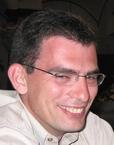 |
Quantum calibration
November 20: Working group with Marco Genovese, Ivo Degiovanni e Giorgio Brida, IENGF Torino. |
| December 10-11 | Alessandra Luati | Bologna | 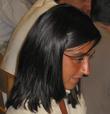 |
Fisher Information
in Quantum Systems Talk on December 10 at 3pm: Maximum Fisher information in mixed state quantum systems |
| December 11-12 | Paolo Mataloni | Roma La Sapienza |  |
Generation
and detection of Entanglement Talk on December 11 at 3pm: Maximally entangled mixed states: creation and characterization |
| January 13-16 | Nicolas Cerf | Bruxelles | 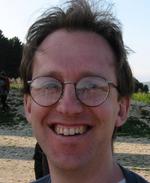 |
Covariant cloning of entanglement Talk on January 14 at 11am: Strong covariance and cloning of continuous variables |
| January 13-16 | Jaromir Fiurasek | Buxelles | 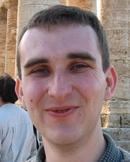 |
Programmable detectors Talk on January 14 at 12pm: Programmable quantum multimeters |
| February 1-14 | Ramon Muņoz Tapia | Barcelona | 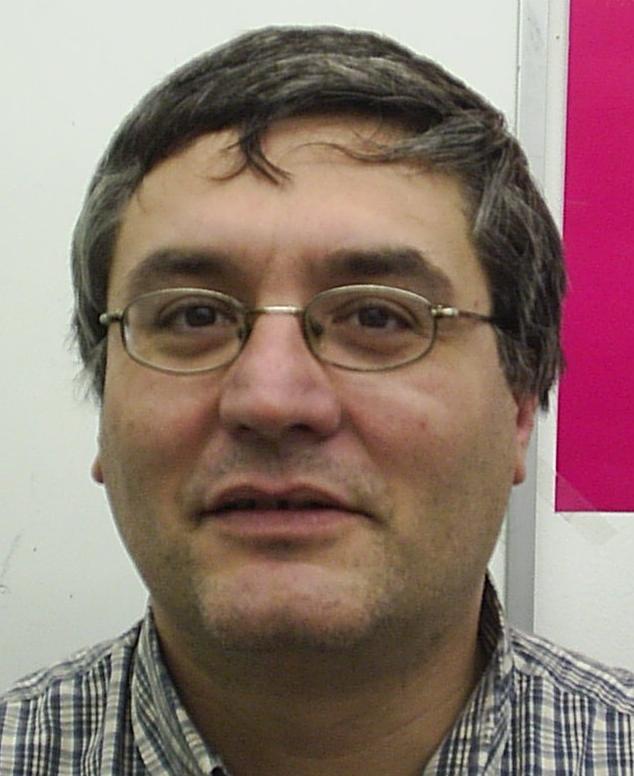 |
Group theoretical informationally complete
discrete POVM's
Talk on February 9 at 2pm: Finite Covariant POVM and applications |
| February 8-11 | Kalyanapuram Rangachari Parthasaraty | New Delhi | 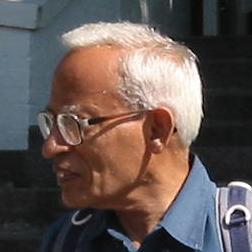 |
Error correction, convex structures,
nice error basis
Talk on Februart 9 at 11am: Extremal states of coupled finite-level quantum systems |
| February 25 | Fausto Borgonovi | Brescia Università Cattolica |  |
Quantum effects in single spin measurement by magnetic resonance force microscopy |
| March 1-2 | Luigi Lugiato | Universita` Insubria | 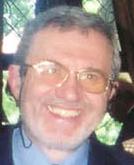 |
Quantum Measurements and new quantum devices
Working group: From Insubria Morten Bache, Enrico Branbilla,
Alessandra Gatti From Camerino: Paolo Tombesi |
| March 15 - 27 | Marie Beth Ruskai | Lowell | 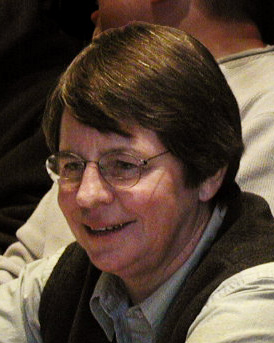 |
Quantum and classical capacity of channels
March 17,18,19,24,25,26: lectures on Topics in quantum channels |
| March 16-20 23-27 | Vittorio Giovannetti | Pisa | 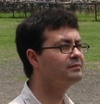 |
Quantum and classical capacity of channels |
| April 1 - July 31 | Michael Keyl | Braunschweig |  |
Quantum Channels, and algebraic methods for Quantum Information ATESIT Contract Talk on April 28 11AM: Quantum state estimation and large deviations |
| April 22 | Luigi Accardi | Roma | 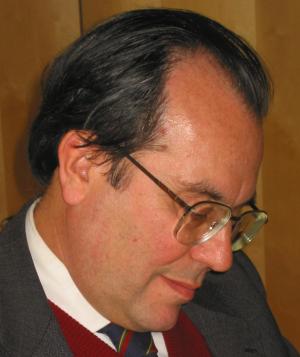 |
Nonlocality and hidden variables
Talk on April 22 2PM: Il paradosso EPR: dalla filosofia all'industria |
| April 18-25, 28-30 | Michele Mosca | Waterloo (CA) | 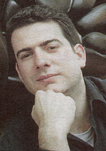 |
Quantum computation
Possible working group: Pranab Sen, Martin Roetteler |
| April 21-28 | Martin Roetteler | IQC (CA) | 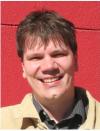 |
Quantum computation
Talk on April 28 10AM: Using Orthogonal Arrays in Quantum Computing |
| April 28 | Jonathan P. Dowling | NASA JET PROPULSION LABORATORY, California Institute of Technology | 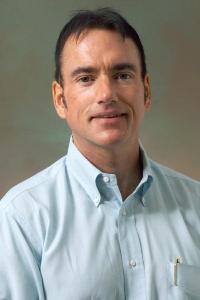 |
Quantum measurements in optics
Talk on April 28 4PM: Linear Optics and Projective Measurements for Fun and Profit! |
| May 2-6 | Janhua Shih | Baltimore | 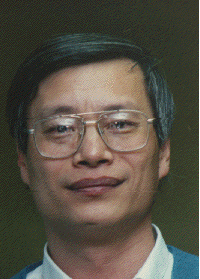 |
Experimental realization of Bell measurements |
| May 3-7 | Dagmar Bruss | Hannover | 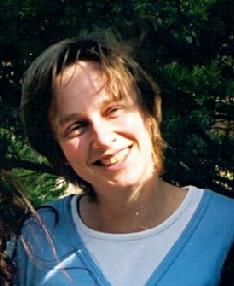 |
Quantum cloning, dense coding |
| May 3-7 | Maciej Lewenstein | Hannover | 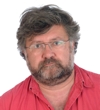 |
Quantum cloning, dense coding |
| 10-30 May | Maxim Raginsky | Northwestern | 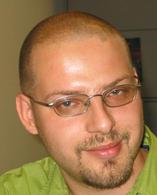 |
Quantum channels
Talk on May 19 02PM: Comparison theorems for quantum operations |
| 27-28 May | Rosario Fazio | Pisa |  |
Josephson-junctions implementations |
| May 30 -June 2 | Martin Plenio | London | 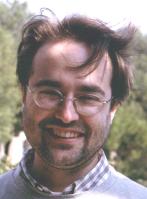 |
Entanglement
Talk on May 31 11AM: Entanglement and area in harmonic lattice systems |
| 31 May-8 June | Debbie Leung | Caltech |  |
Measurement-Based Quantum Computation Schemes;
Quantum channels
Talk on June 1 4PM: Unifying and Simplifying Measurement-Based Quantum Computation Schemes |
| May 31- June 6 | Alexander Holevo | Moscow |  |
Quantum Channels, covariant instruments, and algebraic
methods for Quantum Information
Talk on June 1 2PM: Anatomy of additivity for multiplicativity breaking channel |
| May 31- June 6 | Reinhard Werner | Braunschweig |  |
Quantum Channels, covariant instruments, and algebraic methods for Quantum Information
Talk on June 1 3PM: Quantum Cellular automata, Random walks, and Turing machines |
| 2-4 giugno | Massimo Palma | Crema | 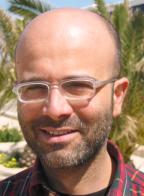 |
Classical channels with entangled uses |
| June 2-5 | Richard Gill | Utrecht | 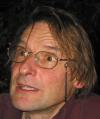 |
Statistical methods, quantum tomography |
| June 9-16 | Rachele Fermani | Utrecht | 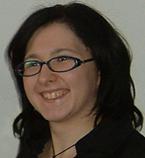 |
Precision measurements in quantum optics
Talk on June 11 11AM |
| June 14-18 | Anna Sampera | Hannover | 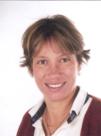 |
Gaussian state cryptography
Talk on June 16 2PM: Key distillation from Gaussian states by Gaussian operations |
| June 14-27 | Dirk Schlingemann | Braunschweig | 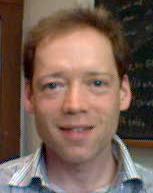 |
Quantum cellular automata
Talk on June 15 11AM: On the structure of Clifford quantum cellular automata |
| 21 June - 3 July | Madalin Guta | Utrecht | 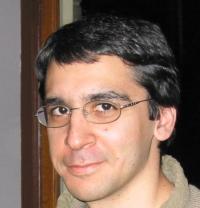 |
Algebraic methods, statistics, quantum tomography
Talk on June 24 11AM: On the relation between information and disturbance in quantum measurements |
| 21 June - 3 July | Luis Artiles | Eindhoven | 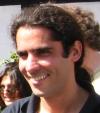 |
Algebraic methods, statistics, quantum tomography
Talk on June 30 11AM: Some statistical problems of Quantum Homodyne Tomography |
| 31 June-1 July | Massimo Palma | Crema |  |
Classical channels with entangled uses
Talk on July 1 at 11 am: Berry phase for a spin 1/2 in a classical fluctuating field |
| July 8-9 | Paolo Mataloni | Roma La Sapienza |  |
Generation and detection of Entanglement |
